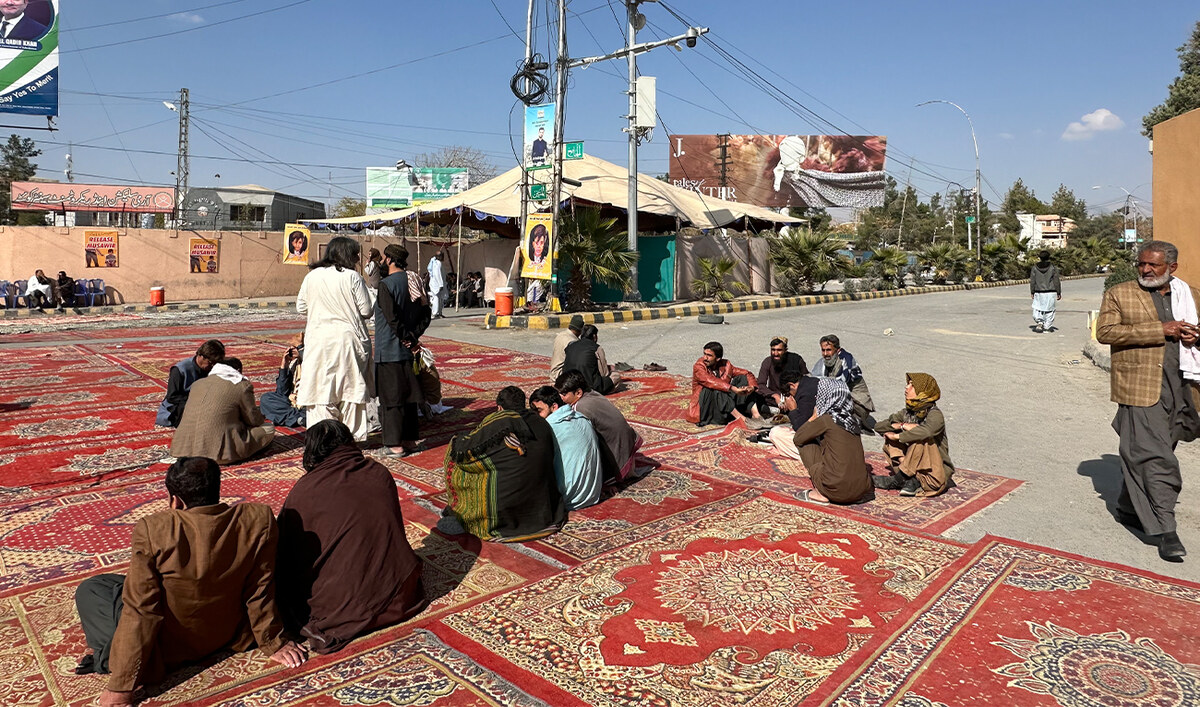ISLAMABAD: The Pakistani Taliban, or the Tehreek-e-Taliban Pakistan (TTP), have urged the Pakistani state to establish Islamic law and warned that the group is “nether tired nor hopeless” of fighting what it described as a holy war to achieve its goals.
The TTP’s statement, released to the media on Tuesday, comes after the visit to Kabul by a delegation of top Pakistani clerics to discuss Pakistan-Afghanistan bilateral ties and push forward an ongoing peace process between the banned TTP and the government in Islamabad.
The TTP, which wants to impose Shariah law in Pakistan, has carried out some of the bloodiest attacks in the country since 2007, including a 2014 assault on a military-run school in Peshawar in which 134 students were killed. The group is not directly affiliated with the Afghan Taliban, but has pledged allegiance to them.
On June 4, the group extended its cease-fire with the government for an indefinite period, after two-day talks with a delegation of Pakistani tribal elders facilitated by the Afghan Taliban.
In a latest press release, the TTP thanked the Pakistani delegation for taking the time to visit Afghanistan and acknowledged the efforts of the Afghan government in facilitating peace talks. The group, however, warned the Pakistani state that it is not tired of “Jihad,” or holy war.
“Alhamdulillah, we are neither tired nor hopeless, nor is Jihad a path of despair and hopelessness, but it is certain that Jihad is a path of patience and difficulties, and transformations and changes that are impossible become possible due to the blessed action of Jihad,” the TTP said.
The TTP’s main demand for peace talks to go forward is that Pakistan scrap a 2018 law that did away with the semi-independent status of the former tribal regions that dates back to British colonial rule. The law aimed to grant equal rights to millions of residents in the restive FATA areas once they were incorporated into Pakistan’s authority as Khyber Pakhtunkhwa province.
The group also wants Pakistani troops to pull out of Khyber Pakhtunkhwa, release all the TTP fighters in government custody and revoke all the legal cases against them.
In its latest statement, the TTP said it is not an anti-state group or under the influence of anti-Pakistan forces, adding that it is an “armed power” that is waging Jihad to implement the “ideology of Pakistan,” which it believes is Shariah law.
It said ethnic Pashtuns residing in the tribal areas had decided to become a part of Pakistan at the time of the partition of British India in 1947 on the condition that Islamic law would be established in the country. But this had not happened despite the passage of over seven decades, the group said.
“The main obstacles in the implementation of this agreement are the army and political families of Pakistan which we have unfortunately inherited from the Europeans,” the TTP said. “Regarding Pakistan, we believe that the implementation of the ideology of Pakistan is the sole guarantor of Pakistan’s welfare, unity, peace and progress.”
The Pakistani military or government have not yet responded to the TTP’s statement.

















